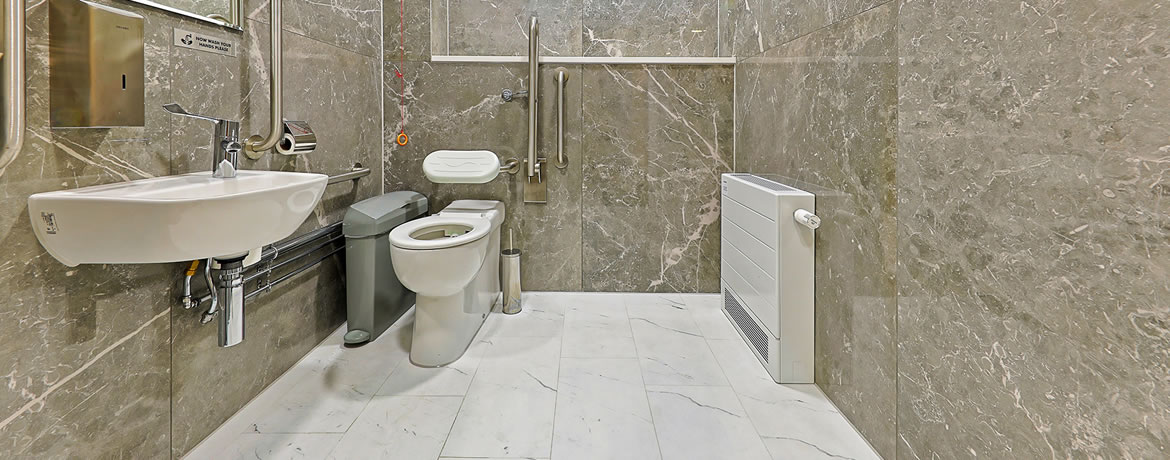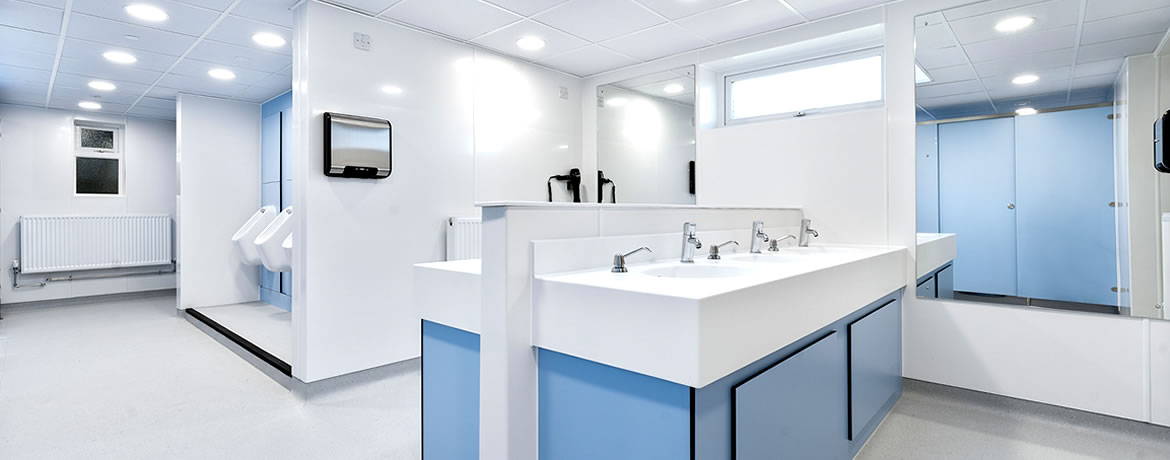Sanitary Bins
Keep your Washrooms clean with our range of Sanitary Bins
Sanitary bins are vital in the commercial washroom environment as they keep toilets safe and hygienic. Businesses are legally obligated to provide sanitary bins in their washrooms for staff and visitors, and we have a wide range of sanitary bins and hygienic bag dispensers to keep your washroom clean and user-friendly.
At Commercial Washrooms we have a diverse range of sanitary products including bins and dispensers, all ideal for a variety of washroom environments. You can choose from pedal-operated sanitary bins or sensor-operated waste bins, which do not require the user to touch the bin, adding another health and safety measure. You can find and purchase all these products easily on this website or by contacting our team on 01202 650900, who can help and advise you on any additional queries you may have.
Sanitary Bins FAQ
What are sanitary bins used for?
Sanitary bins are mainly used in commercial washrooms to discreetly dispose of women’s sanitary products, such as tampons and pads. Businesses must provide sanitary bins for legal reasons, but ultimately, they are used to keep washrooms hygienic and to avoid damaging the environment and sewage systems. Sanitary bins can also be used to dispose of other sanitary waste, such as nappies.
Are sanitary bins a legal requirement?
In the UK, there are legal requirements for business owners to adhere to with regard to sanitary waste disposal bins; these include:
-
The Workplace (Health, Safety and Welfare) Regulations 1992 states that businesses must provide a suitable means of disposing of sanitary products in women’s washrooms.
-
The Environmental Protection Act 1990 states that businesses have a legal duty of care to correctly and safely manage and dispose of waste products on their premises.
-
Water Industries Act 1991, which states that items that could cause a blockage in a sewage system should not be flushed.
If these laws aren’t abided by, you are breaking human rights regulations and risking severe environmental damage.
How often should sanitary bins be emptied?
Sanitary bins should be emptied regularly to maintain good hygiene and prevent sanitary bins from making your commercial washroom smell. How often you empty your sanitary bins will depend on how much your washrooms are used and how many sanitary bins you have available. That said, sanitary waste is typically disposed of bi-weekly or monthly, and a disposal service may be required to collect it safely.
What happens to sanitary bin waste?
Sanitary waste disposal is governed by legislation in the UK, and many businesses will use a licensed waste collector to ensure the safe removal of sanitary waste products. These waste removal services are discreet,e and sanitary waste may be taken to a landfill or specialists who can convert waste to energy to provide sustainable energy to businesses, homes and so on.
How to empty a sanitary bin
It is important to take care when emptying a sanitary bin because coming into contact with body fluids such as blood increases the risk of exposure to bloodborne pathogens such as HIV, Hepatitis B&C and other dangerous germs that pose a threat to health. For this reason, companies should work with a waste disposal company to empty and clean sanitary bins.
How do sanitary bins work?
There are different styles of sanitary bins, and ideally, users will not have to touch them to dispose of their sanitary waste. Here are the main types of sanitary bins and their key features:
Pedal operated sanitary bins
These allow the user to open sanitary bin lids with their foot, meaning they do not have to touch the bin with their hands. Users press their foot on the bin’s pedal, and the lid pops up. They can throw away their waste!
Automatic sanitary bins
Automatic sanitary bins use a sensor so that the lid opens without the user having to touch the sanitary bin. This is a very hygienic option as there is no contact with the germs on the bin.
Disposal chute
Many sanitary bins feature a chute which provides a slope for the sanitary waste to go down - this means that users will not have to see the contents of a sanitary bin and helps to prevent bad odours from making your washroom smell.
Sanitary bags and dispensers
Some toilets may have sanitary dispensers which allow women to put their sanitary waste in a bag before disposing of it in the sanitary bin. This helps to seal bad odours and makes emptying waste bins easier.







